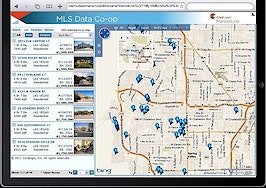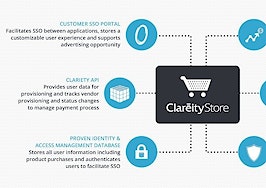What started out as a proposed rule change to allow multiple listing services and Realtor associations to charge members for providing lockboxes as a “basic” service — regardless of whether they used them or not — has morphed into a broader debate over the role of MLSs.
Should MLSs operate public-facing websites that allow not only member brokers and agents, but members of the public, to search for listings?
Should MLSs provide services to agents — like agent websites, comparative market analyses (CMAs) and “paperless” transaction management systems — that some brokers say they can provide to their agents themselves?
And if MLSs decide to provide such services, should they be allowed to require that all of their members pay for them — even those who choose not to use them, or are opposed to them being provided in the first place?
A number of MLSs already provide a range of services that some brokers say go beyond what the National Association of Realtors has defined as an MLS’ “core” function: to communicate information on active listings and offers of compensation to cooperating brokers between MLS members.
The questions being considered this week in Washington, D.C., by NAR’s Multiple Listing Issues and Policies Committee are:
- What services should MLSs be allowed to define as “basic” — requiring their members to pay for them, regardless of whether they use them or not?
- What services should be “optional” — allowing members who don’t want them to opt out of using and paying for them?
Brokers and MLS executives alike say that in attempting to update language defining “core,” “basic” and “optional” MLS services, NAR has opened up a can of worms.
A proposed policy amendment to NAR’s model MLS rules — drawn up in March by an advisory board to the Multiple Listing Issues and Policies Committee — has struck a nerve with some brokers.
As proposed, MLSs would not be allowed to require that members use or pay for agent or broker websites or advertising, including classified advertising or “homes” publications furnished by their MLS.
But the proposed language explicitly states that MLSs or Realtor associations would not be prohibited from using dues or fees to establish or maintain public-facing websites.
MLSs and associations would also be allowed to collect mandatory fees and dues for providing unspecified “basic services,” as long as they were “substantially related to the purpose and functions of the MLS.”
The amendment would do away with a list of “basic services” that MLSs can charge all members, such as tax records, mapping capabilities, and statistical information, which some MLSs have complained is too limiting.
Some MLSs, for example, would like to charge all of their members for providing lockbox services, saying that the more members they provide services to, the lower the cost per member. (The proposed amendment would specifically allow MLSs to make lockboxes a “basic” service, as long as they don’t generate a profit in providing it.)
But some brokers don’t like the idea of competing with MLS-run websites, or being forced to pay for MLS-provided services that they can provide to their agents themselves.
Like Zillow, Trulia and realtor.com, public-facing MLS sites draw consumer Web traffic from broker sites in the markets they operate, some brokers say.
HomeServices of America, the second-largest real estate brokerage company in the U.S., and The Realty Alliance, an association of 70 U.S. brokers, have sent letters to the NAR committee, expressing disapproval of the draft policy amendments.
Allowing MLSs and Realtor associations to use member fees and dues to market public-facing websites would “put them in competition with many of their broker-members, specifically their larger broker-members,” said Bob Moline, president and chief operating officer of HomeServices, in a letter to the committee posted on the industry blog vendoralley.com.
Craig Cheatham, president and CEO of The Realty Alliance, said he does not buy the argument that MLSs should be in the business of providing services to agents because their size allows them to develop tools internally, and gives them bargaining clout with vendors needed to provide services at reduced costs.
“There are many products and services for which an MLS might provide an economy of scale,” Cheatham said in a letter to the committee, “but that are not part of the core purpose of the MLS.”
As they take on responsibilities that are “far-afield of the original purpose and intent of MLSs,” Cheatham said, services tend to “take on lives of their own. MLSs end up with multiplying staff counts and budgets; each new program needs marketing and promotion; and over time many auxiliary programs dwarf the MLS’ core purposes.”
When MLSs become “independent-minded business entities rather than service providers to their participants,” he said, they can find themselves in conflicts of interest with their own members.
Cheatham said some MLSs are “currently failing or refusing to perform their vital and ‘core’ services to our member firms, and instead are offering ancillary services at the expense of their core mission.”
As an example, he said, MLSs may claim that part of their mission is to provide members with access to property data, which enables them to create valuations or analyze market conditions for their clients.
But when brokerages who are members of The Realty Alliance seek data feeds of MLS information to support the creation of valuations like broker price opinions (BPOs), comparative market analyses (CMAs) and home valuations that rely on automated valuation models (AVMs), “the MLSs too often deny these requests, despite the clear statements contained in NAR’s MLS Policy that such uses of the MLS data are legitimate,” Cheatham said.
In some instances, he said, “we suspect the MLSs deny the participants their legitimate rights to use the MLS data for valuation purposes because the MLS itself is venturing with a third party to create such valuations as an ancillary revenue source for the MLS.”
Many, if not most, large MLSs already operate public-facing websites, and provide a range of services to agents that might be seen as competing with offerings brokerages and franchisors provide, often through third-party vendors.
MLSs and Realtor associations that don’t adopt NAR’s model rules — or adopt them, and break them — run the risk of being refused NAR-backed errors and omissions insurance coverage.
One of the nation’s biggest and best-known public-facing MLS sites, HAR.com, is operated by the Houston Association of Realtors, which has warned NAR that “some MLSs are in violation of the current policy, and some will continue to be in violation of the revised policy.”
As it stands now, some MLSs “simply cannot tell if they are in violation of the policy and the new policy does not do anything to clarify this,” HAR said in submitting alternative language the association said would give MLSs more leeway to provide services to members.
HAR agrees that maintaining a list of NAR-approved “basic” MLS services is impractical — such a list would be outdated before it could be approved, the association said. But MLSs should be allowed to provide any services that allow brokers and agents to better serve their clients, customers and the public, HAR said.
If, as currently proposed, “basic services” that MLSs are permitted to collect mandatory dues and fees from all members for are defined simply as those services that are “substantially related to the purpose and function of the MLS,” there will be many gray areas, HAR maintains.
HAR said services that may or may not meet the definition of “basic” include agent IDX websites, CMA programs, showing assistance programs, down payment assistance programs, syndication, mobile applications, e-fax systems, e-signatures, transaction management platforms, statistics packages, and marketing packages included in basic MLS offerings.
The Council of MLSs (CMLS), an association of 150 MLSs, also wants NAR to grant MLSs the leeway to provide a range of services, and to establish, maintain, and market or promote public-facing websites.
“In order to be competitive with outside sources, MLSs should be allowed without undue constraint to operate businesses in their local market by determining what products and services they should provide and how to price those services,” said CMLS President Cathy Holefelder, in a letter to the Multiple Listing Issues and Policies Committee.
HomeServices, however, is not only against the marketing of these sites, but thinks they shouldn’t exist.
“HomeServices does not support the concept that MLSs should operate public-facing websites,” Moline told Inman News.
“HomeServices believes that MLSs were created to support their broker membership and that operating public-facing websites places MLSs and associations in competition with their broker-members,” Moline said. “We believe brokers should have the option to choose where their listing data is displayed. Consequently, the option to participate in and fund public-facing websites should be a choice that each individual broker makes.”
Matt Cohen, chief technology officer for real estate consulting firm Clareity Consulting, said the push and pull between brokers and MLSs has been going on for more than a decade. Many thought the debate over the value of MLS-operated, consumer-facing sites had been settled.
“MLS sites, when properly executed, serve as a bulwark against an ever-increasing array of websites reaching deeper and deeper into broker pockets,” Cohen said, alluding to third-party websites like Zillow and Trulia, which charge for leads.
NAR’s Multiple Listing Issues and Policies Committee will debate the proposed amendment Thursday, and make its recommendations to the association’s board of directors, which meets Saturday.
If the board approves changes to MLS Policy Statement 7.57, “Categorization of MLS Services, Information and Products,” it will be the first time it’s been amended since 1996.
If NAR sides with HAR and other CMLS members, it will in some ways simply be codifying the reality in many markets — that MLSs operate public-facing websites and provide a range of services to members, some of which are mandatory.
But NAR will also risk alienating large brokerages. Brokers not only serve on the boards of directors of MLSs, but in many markets, own them.
In markets where MLS boards are dominated by brokers who object to MLSs providing services that are perceived as going beyond what has traditionally been seen as their “core” functions, those brokers will continue to be able to block their MLS from providing them.
But if other MLS boards are willing to operate public-facing websites and require that all members pay for “basic” services that larger brokerages object to, some brokerages may choose to defect, and operate their own MLSs independently from NAR.
Or they could withhold their listings from Internet Data Exchange (IDX) pools that allow all participating MLS members to display each others listings, and which also feed public-facing MLS sites.
If NAR bows to pressure from brokerages and places stricter limits on public-facing websites and services that MLSs can require members to pay for, that could have repercussions for consumers, and also agents at smaller brokerages who depend on their MLSs to provide low-cost services, critics say.
As currently written, the proposed amendment has critics on both sides.
Editor’s note: This story has been updated. Inman News reporter Paul Hagey contributed reporting for this story.




